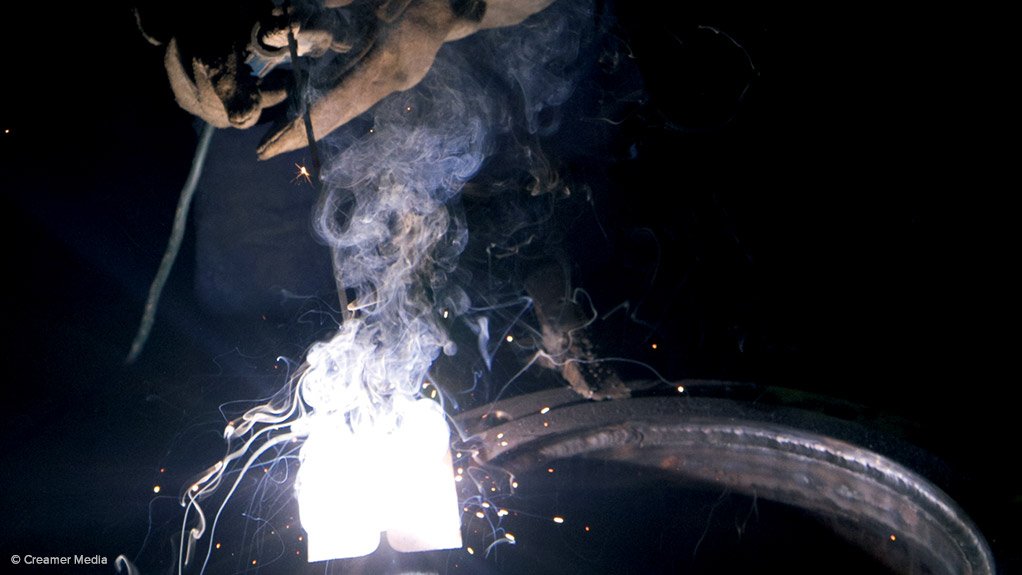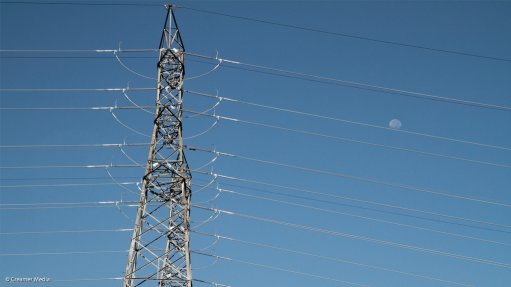Valve manufacturers, foundries should collaborate to ‘take back’ market share
Valve manufacturers and foundries could see a R4-billion to R5-billion recovery over the next three to five years as localisation in public procurement takes hold.
The industry would be able to “take back” the market share lost to foreign companies over the past few years and revive the local manufacturing sector, the National Foundry Technology Network (NFTN) said, as the designation of local procurement by the Department of Trade and Industry (DTI) gained traction.
In January, DTI announced its intention of designating valves, manual and pneumatic actuators, electrical and telecommunication cables, as well as components of solar water heaters, for local production and content in the public sector procurement system.
The strategy aimed to guide State-owned companies (SOCs) on levels of required minimum local procurement for certain products.
Non-South African firms had been granted 67% of SOC tenders during 2010/11.
But, NFTN project leader Adrie El-Mohamadi told Engineering News Online that the promotion of localisation had started to emerge and industry was gearing up to meet the expected rise in local demand, with several cases of individual foundries investing between R50-million and R100-million for improvements.
“Valves were designated at the beginning of the year already, so the processes are under way and many SOCs are actively acting on this already, as DTI has done a lot to communicate with State entities,” she said.
However, the localisation plans of some SOCs, such as Eskom and Transnet, were not dependent on DTI plans, having their own sourcing and localisation strategies, while some government entities, such as municipalities, would not yet have factored the designation into their planning.
“Our experience is that we will really start to see the effects about one-and-a-half years to two years after products are designated, to allow the process to move from the procurement departments of SOCs to first-tier suppliers and then further on down the value chain,” he added.
However, while some of the challenges impeding localisation originated at the SOCs, others were issues of industry, DTI director for capital equipment and allied services Tapiwa Samanga said.
Suboptimal competitiveness among local suppliers, weak industry structures, a lack of industrial financing, low productivity levels and volatile energy, gas and water resource efficiencies weighed on the industry.
Further, foundries had not yet grasped the scale of the impact, with El-Mohamadi pointing out: “Dr Shawn Cunningham [who has been contracted by the NFTN to develop foundry supply chains] outlined specific gaps that foundries need to pay attention to, such as communication, flexibility and proactivity. At the moment there is a lot of excess capacity in industry - many manufacturers and foundries are running at less than 50% capacity.”
Policymakers, customers, manufacturers and industry bodies needed to collaboration to turn the “ailing sector” around and cash in on the anticipated rise in revenue over the next three to five years.
El-Mohamadi noted that collaboration has already started, with import replacement under way and further import replacement opportunities increasingly available
The NFTN said it has partnered with the South African Equipment and Export Council, which included hosted various clusters, such as valves, pumps and traction-motors, private companies shifting orders back into South African supply chains and SOCs were creating working groups with their respective supply chains.
“The NFTN is working to facilitate the upgrade of the foundry value chain by combining a supply push (upgrading foundries) with a demand pull (leveraging the unique requirements of customers). These two factors will allow the industry to take advantage of the anticipated upswing in demand,” Cunningham said in a July presentation.
Article Enquiry
Email Article
Save Article
Feedback
To advertise email advertising@creamermedia.co.za or click here
Press Office
Announcements
What's On
Subscribe to improve your user experience...
Option 1 (equivalent of R125 a month):
Receive a weekly copy of Creamer Media's Engineering News & Mining Weekly magazine
(print copy for those in South Africa and e-magazine for those outside of South Africa)
Receive daily email newsletters
Access to full search results
Access archive of magazine back copies
Access to Projects in Progress
Access to ONE Research Report of your choice in PDF format
Option 2 (equivalent of R375 a month):
All benefits from Option 1
PLUS
Access to Creamer Media's Research Channel Africa for ALL Research Reports, in PDF format, on various industrial and mining sectors
including Electricity; Water; Energy Transition; Hydrogen; Roads, Rail and Ports; Coal; Gold; Platinum; Battery Metals; etc.
Already a subscriber?
Forgotten your password?
Receive weekly copy of Creamer Media's Engineering News & Mining Weekly magazine (print copy for those in South Africa and e-magazine for those outside of South Africa)
➕
Recieve daily email newsletters
➕
Access to full search results
➕
Access archive of magazine back copies
➕
Access to Projects in Progress
➕
Access to ONE Research Report of your choice in PDF format
RESEARCH CHANNEL AFRICA
R4500 (equivalent of R375 a month)
SUBSCRIBEAll benefits from Option 1
➕
Access to Creamer Media's Research Channel Africa for ALL Research Reports on various industrial and mining sectors, in PDF format, including on:
Electricity
➕
Water
➕
Energy Transition
➕
Hydrogen
➕
Roads, Rail and Ports
➕
Coal
➕
Gold
➕
Platinum
➕
Battery Metals
➕
etc.
Receive all benefits from Option 1 or Option 2 delivered to numerous people at your company
➕
Multiple User names and Passwords for simultaneous log-ins
➕
Intranet integration access to all in your organisation




















